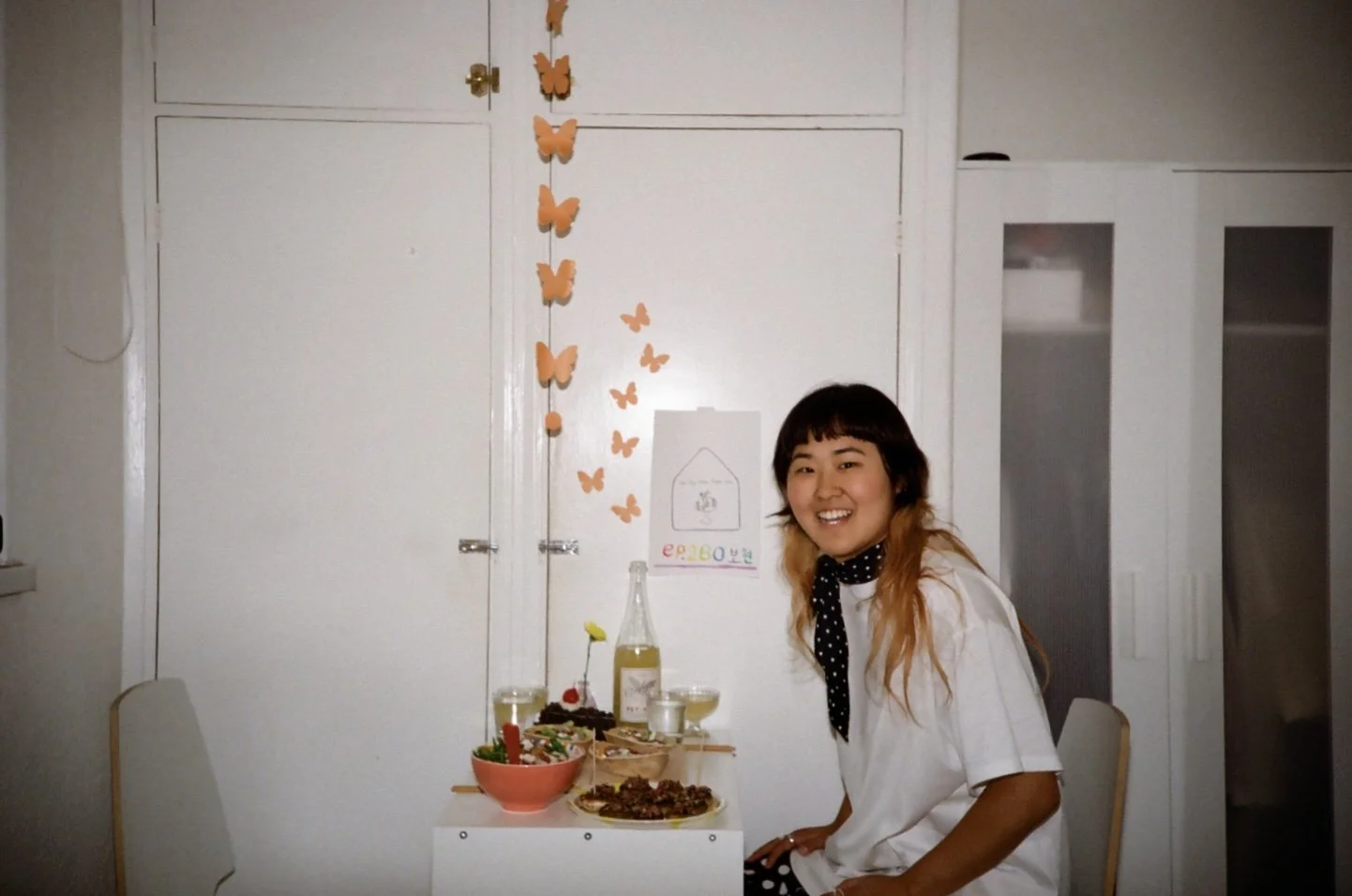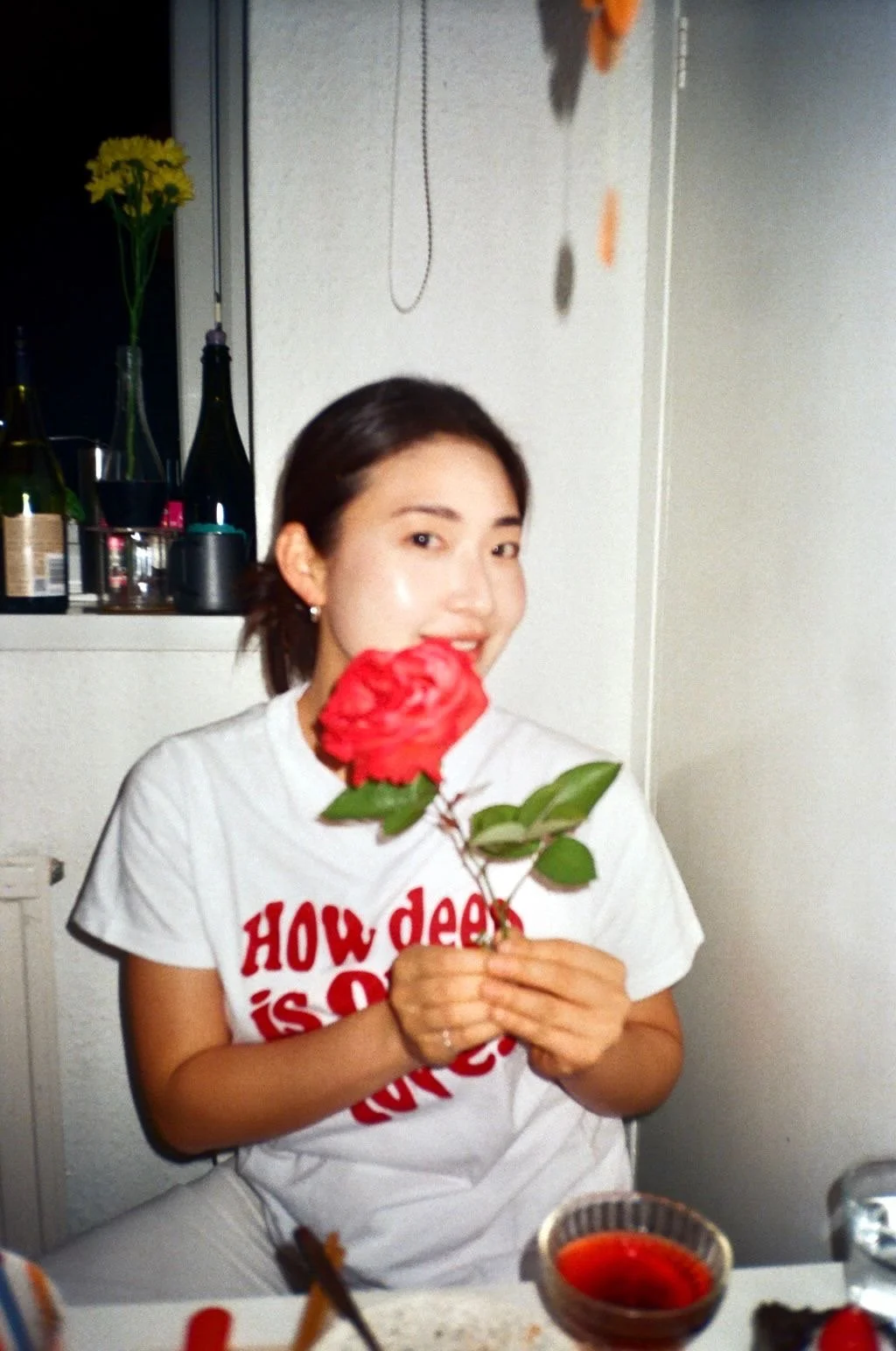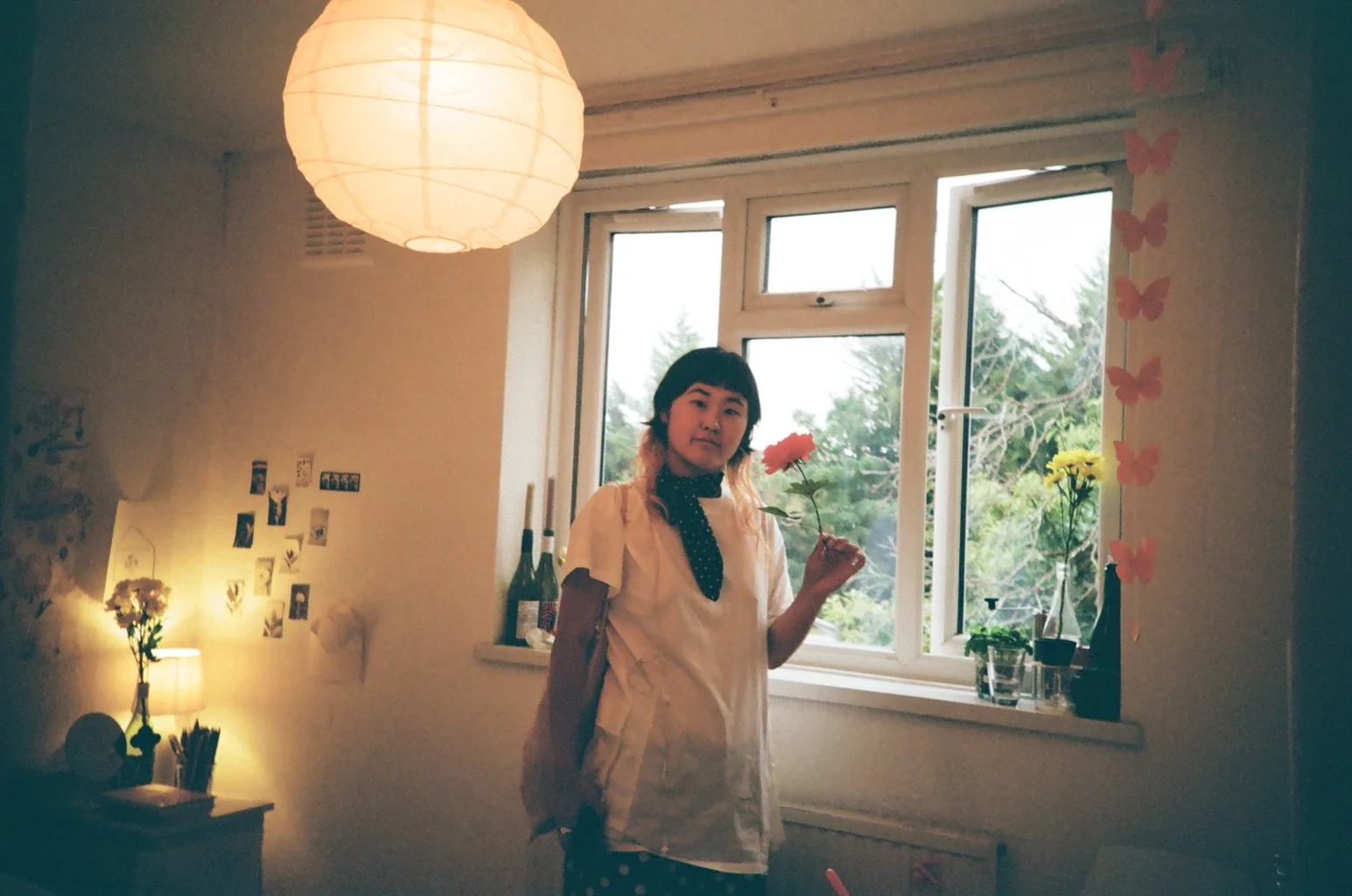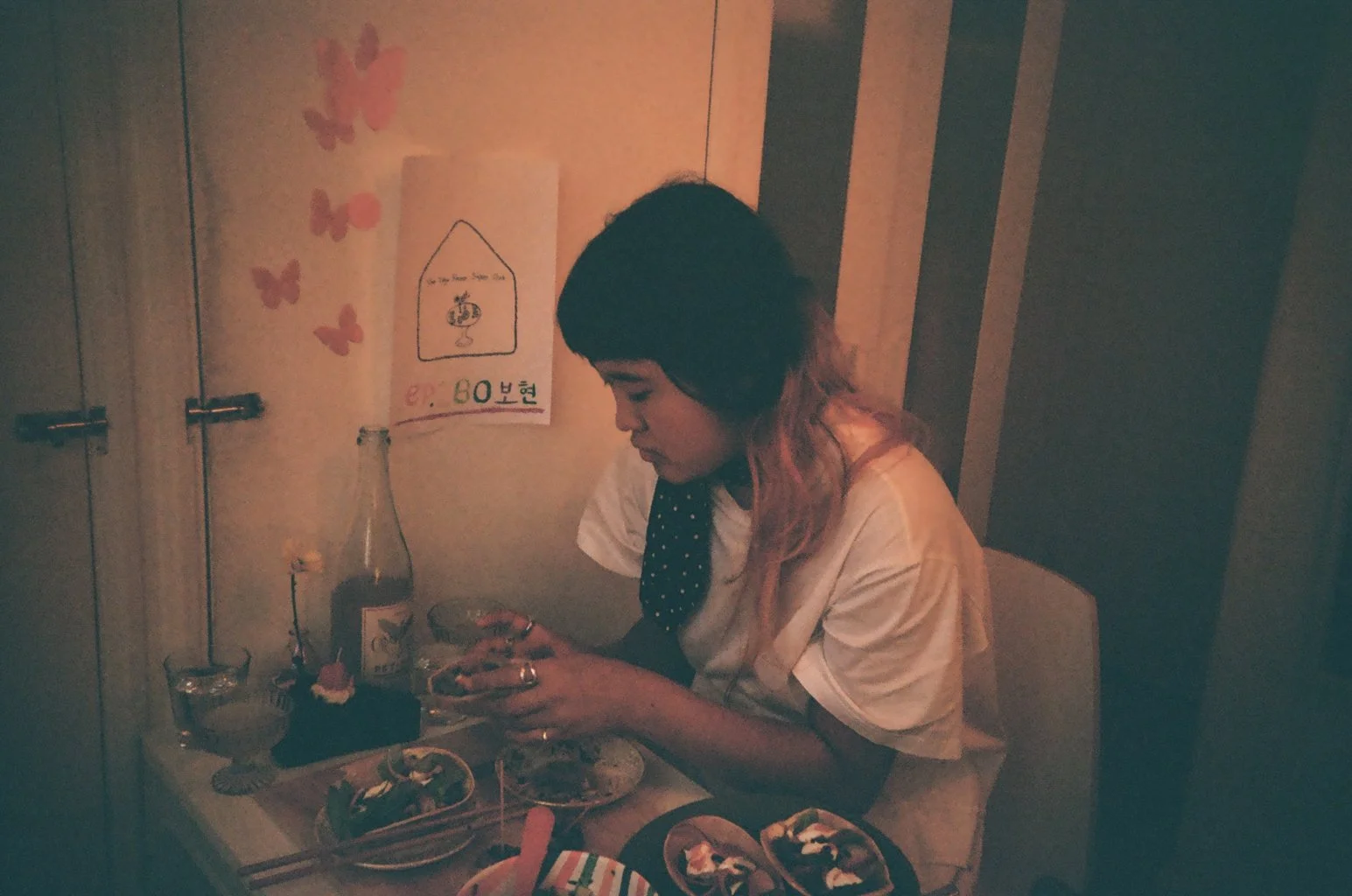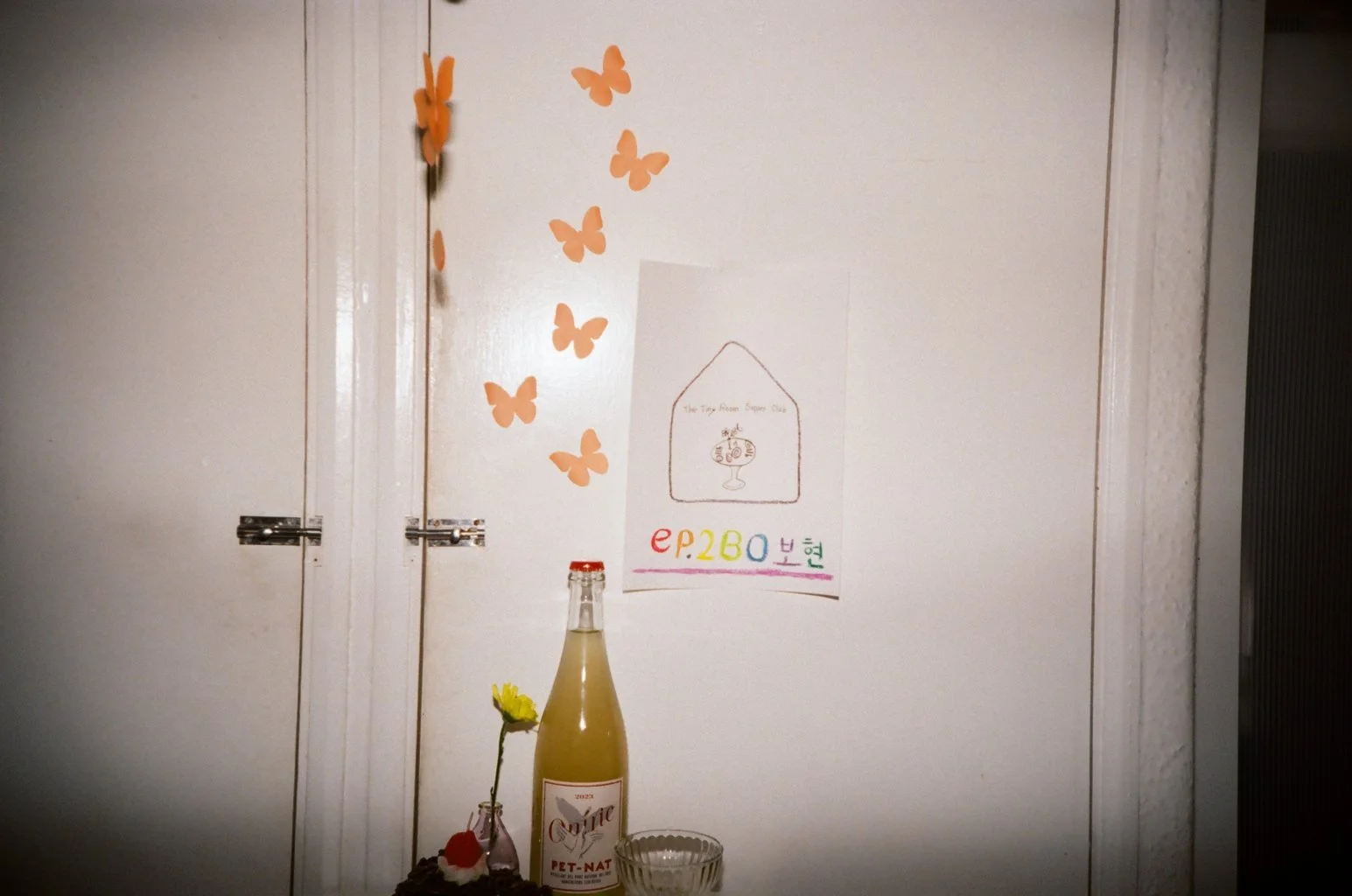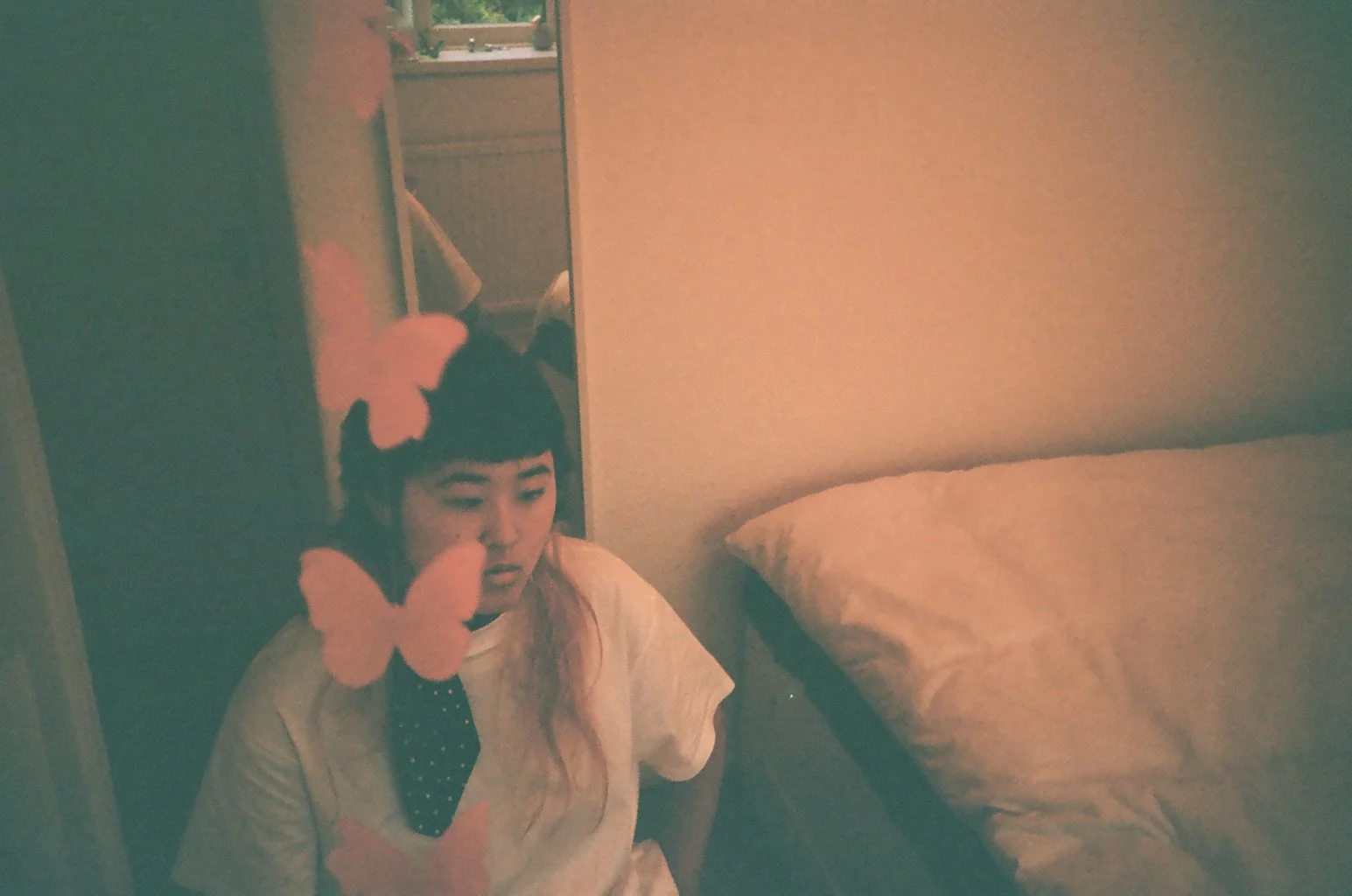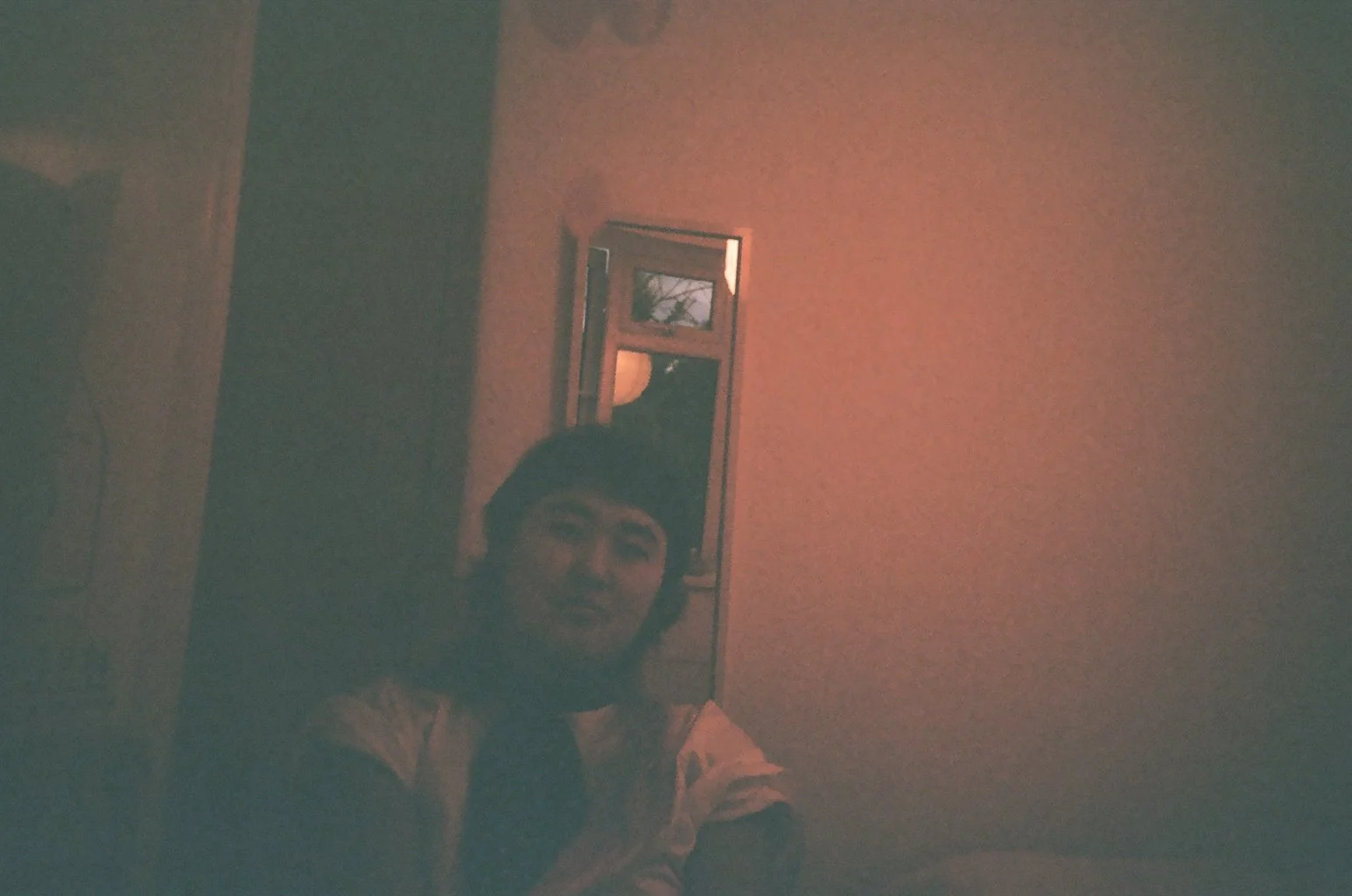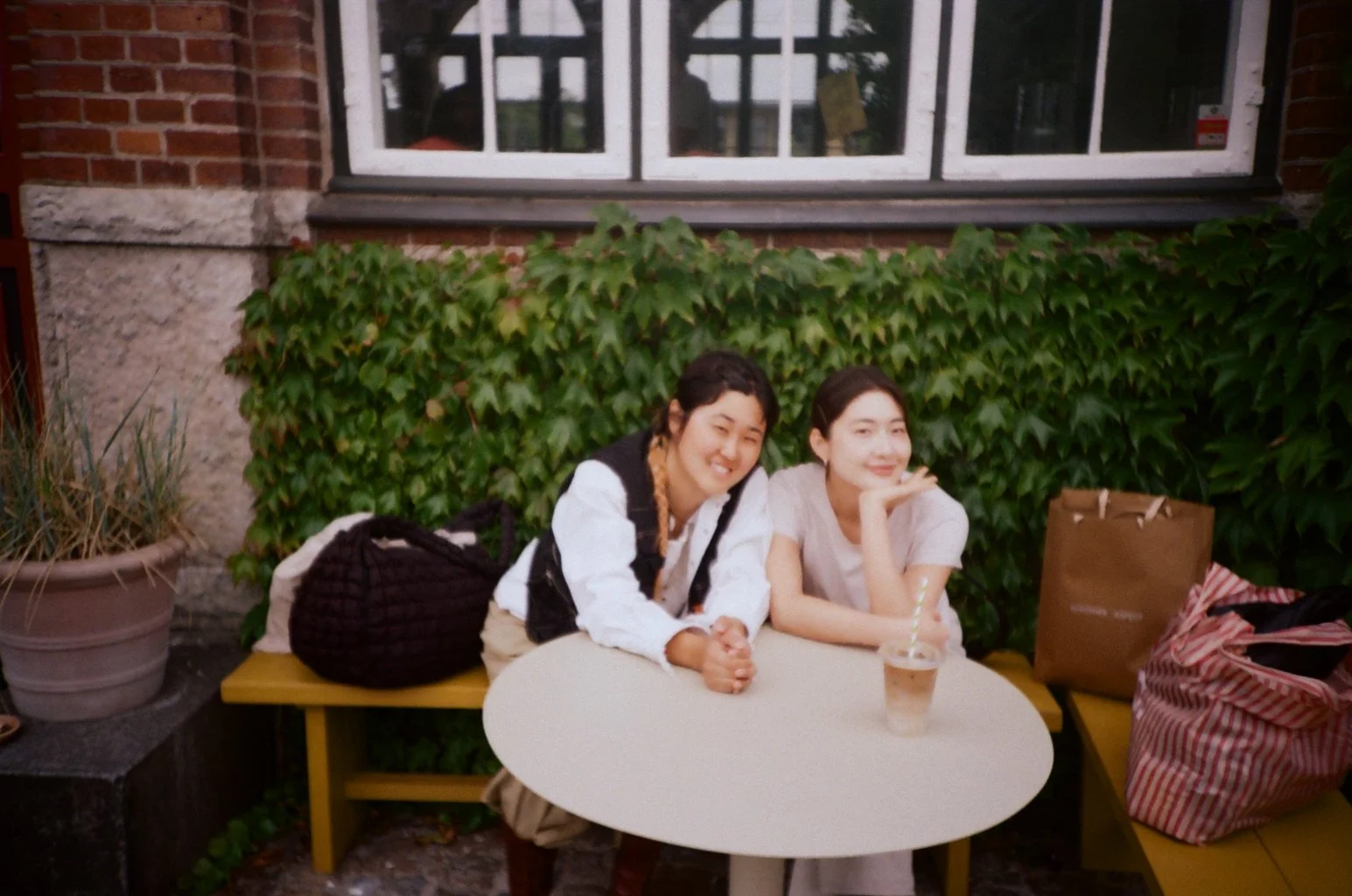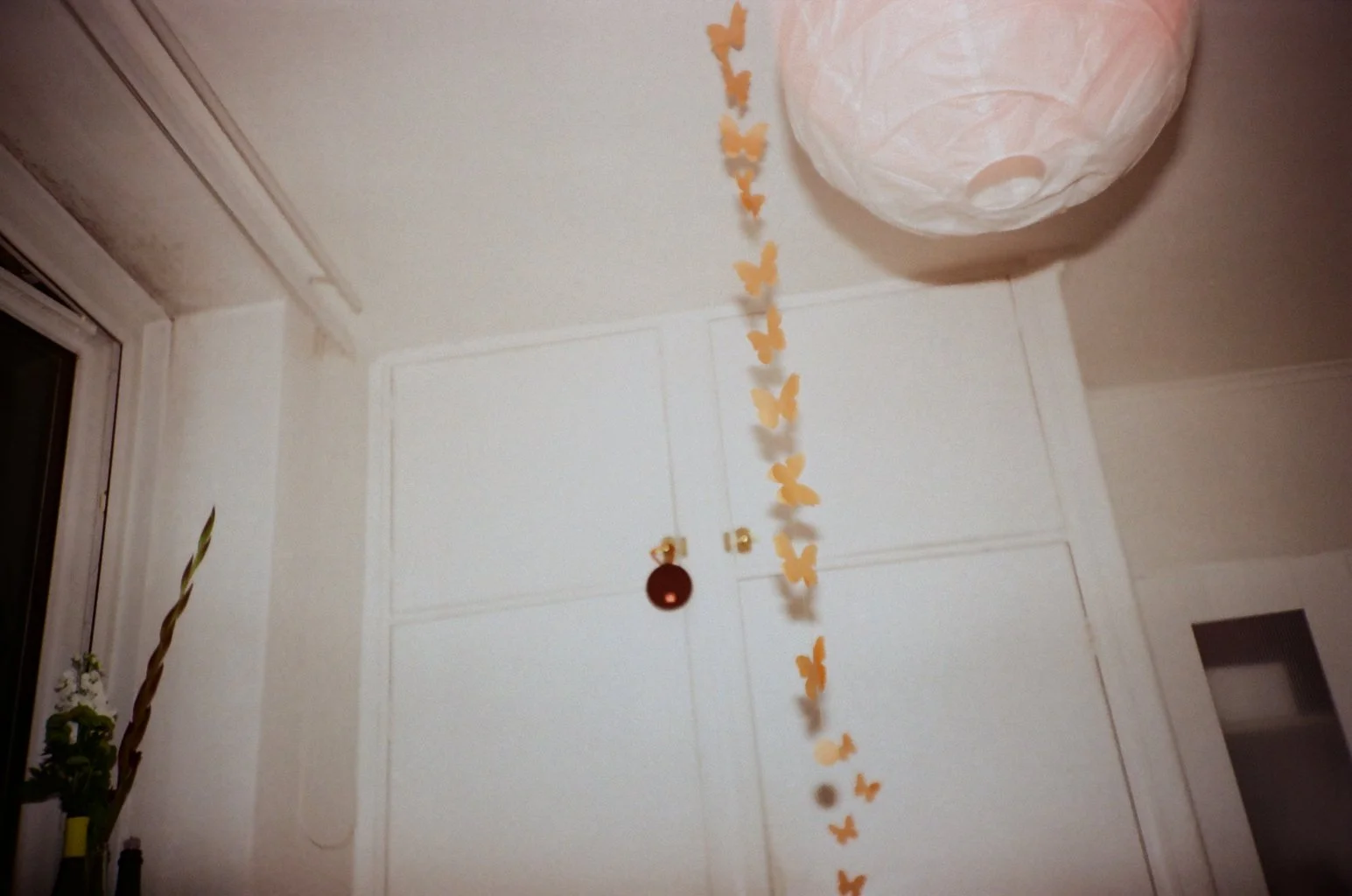
ep.2 Bo
30 June, 2024
before the dinner・・・
When I thought of my second guest, Bo, her bright energy and passionate vibe reminded me of the season of summer. Bo, with her unique style, was someone who couldn't be defined by just one color. Perhaps that's why a rainbow came to mind. Combining Bo’s free-spirited and intense energy, the Spanish friends who always stand by her side, and the fact that our dinner was held on the last day of June, during Pride Month, I felt inspired to create colorful and vivid dishes. Drawing from these points, I wanted to make food that would reflect the vibrant colors and be fitting for summer—something refreshing, light, and delicious without needing to be warm. That's when I thought of Spanish/Mexican cuisine. The menu included a cool and tangy octopus salad perfect for a summer day, boat-shaped tacos with a twist of sautéed kimchi added to the classic taco, and chorizo stuffed mushrooms, a well-known Spanish appetizer.
There's an English term, "social butterfly," which refers to someone who is very sociable and has many friends—the type we often call a popular person. Bo has an abundance of friends and is always actively interacting with them, which made me think of her as a butterfly freely fluttering from place to place. So for the room decor, I decided to create a mobile in the shape of butterflies.
•
•
•
Eat & drink・・・
ensalada de pulpo
octopus salad
champiñones rellenos de chorizo
mushrooms stuffed with chorizo
Boat-shaped Kimchi Tacos
Entre Vinyes Oniric Pet Nat 2023
Penedes, Spain
talk・・・
As Bo stepped into my room, she handed me a single coral rose, saying she’d seen a flower on her way over that reminded her of me, so she picked it. Moments like this show just how romantic Bo truly is.
After I briefly explained the reason behind the menu selection, Bo started digging into the food. While asking me a series of questions about what I'd been up to, she focused on the food, chewing with her mouth full as I responded. As she listened to me talk, she would interject with her characteristic tone, offering casual words of empathy. Our conversation went something like this:
Bo. "Unni, how was your family trip?"
Sol. "It was good, but what happened was (talking quite seriously for a while)"
Bo. "좋네! Sounds nice!"
(Back to focusing on the food)
Bo. "Are your parents doing well?"
Sol. "Hmm, Bo, you know... Seeing my mom and dad after so long really got me thinking about aging and all that.(talking quite emotionally for a while)"
Bo. "나이 들면 서럽제~ 근데 어쩔 수 없제~ Getting older is tough, but what can we do about it?"
(Back to focusing on the food)
After a while, Bo, having been so focused on eating, suddenly said,
"I feel like I’ve just been eating and not sharing much about myself. Doesn’t this go against the whole point of the project? Is this okay?"
So, naturally, I began sharing some things I’d been curious about, all while thinking of Bo.
As I reflected on Bo's unique qualities, I realised she embodies many traits that diverge from typical Korean norms. Intrigued, I asked her how she perceives her identity, especially in relation to her Korean roots.
Bo responded with a lighthearted remark, saying that whenever she talks to her foreign friends, she often declares, "I'm super Korean!" This playful assertion made me curious about her self-perception and what "standards of beauty" mean to her.
This led Bo to share an interesting story about her friend A, who is in a relationship with someone from East Asia. Although A finds his partner incredibly attractive, A’s partner doesn’t share the same view of himself and often questions why A is dating him. This tendency to downplay one’s attractiveness or worth reflects deeper insecurities tied to societal expectations, and it’s something many can relate to.
Bo then naturally shifted the conversation to her unique approach to building connections with people: she opens up about her insecurities. By revealing her vulnerabilities, she finds that others feel more comfortable sharing their own, creating a deeper bond. Naturally, I was curious about what specific insecurities she usually shares.
Bo explained that the topic often revolves around her appearance. She frequently tells others, "I’m not pretty," whether they’re Korean or foreign, adding, "I often say, 'I'm not pretty in Korea.'" This discomfort with the term "pretty" stems from Korea’s rigid beauty standards, which have always felt overwhelming to her. She recounted how, from a young age, her family affectionately called her "못난이 the ugly one."
As she entered middle school, the comments intensified, especially in a co-ed environment. Taller than her peers, Bo often faced teasing from boys who would jokingly ask, "Why are you so ugly?" While she tried to brush it off as banter, these words stuck with her, leading to self-doubt about her looks.
Korean beauty ideals typically emphasize a small face, big eyes, and a petite frame—criteria Bo felt she didn’t meet. With her height nearing 5'11", she often felt like she stood out in the wrong way. This led her to switch from a co-ed school to an all-girls school, hoping for a more accepting environment. However, she soon discovered that the competition among girls was just as intense.
In high school, Bo had a pretty friend whose looks seemed to wield incredible influence, drawing admiration even from girls. It baffled her to witness how beauty could create a social hierarchy, even among the same gender. Friends and family often reminded her, "You’re not pretty, but you have an attractive face," further solidifying her belief that she didn’t fit the mold of conventional beauty.
As a result, Bo decided to abandon the notion of seeking validation through beauty. She stopped telling people they were pretty, not wanting to endorse those rigid standards. Instead, she focused on giving specific compliments, like "I love your style today!" or "Your skin looks gorgeous!" Reflecting on her interactions, Bo realised that her discomfort with the word "pretty" revealed a deeper insecurity. It was a powerful moment of self-discovery, highlighting how societal standards can shape our self-image and the way we connect with others.
Bo shared that living outside of Korea has allowed her to feel much freer. In her experience, there isn’t a single, unified standard by which people are judged in places like London. While she may stand out for her unique style, it’s never perceived as wrong—just different. This acceptance, she explained, contrasts sharply with how she felt in Korea, where the pressure to conform to certain beauty ideals left her constantly feeling like she wasn’t measuring up. The need to meet these invisible standards made her feel like she always had to try harder to be accepted.
This observation about cultural differences resonated with me. In London, the diversity of people and their styles naturally discourages constant comparison. There isn’t a one-size-fits-all standard, which in turn fosters more acceptance of individuality. However, in Korea, it can sometimes feel as though everyone is silently competing to meet those fixed societal expectations.
We continued our conversation about the cultural differences we feel when living in Korea versus living abroad.
Bo and I found ourselves laughing over the quirks of dating culture, particularly when comparing Korean and Western approaches. Bo shared how, in Korea, she often felt that women needed to have the upper hand in relationships, almost like controlling or manipulating the situation to maintain power. I admitted that, despite thinking I wasn’t like that, I’d also fallen into similar patterns without realizing it.
I shared an experience with my partner, where I had been upset, but rather than explaining why, I expected him to figure it out on his own. My partner had calmly pointed out that if I didn’t express my feelings clearly, he would only have to guess the reason, which could lead to more misunderstandings. This moment made me realize how ingrained this behavior was—to expect the other person to guess why I was upset without me having to say it outright.
Bo brought up an interesting point from a video she had watched about cultural communication styles. The video compared "ask" cultures, like in the West, where people directly inquire about preferences or problems, and "guess" cultures, like in Korea, where people are expected to pick up on unspoken cues. This explains why, in Korea, we often prefer to surprise someone with a gift by guessing what they would like, rather than simply asking them. There’s even a specific word in Korean for this—'눈치 (noonchi)', meaning the ability to read the room or anticipate others' needs without being told.
We both agreed that this guess-based culture had shaped much of our upbringing, where we were expected to intuit others' emotions or desires without them being explicitly communicated. Now, living abroad in a more direct, "ask" culture, we’ve had to adjust. Being asked to clearly state how we feel or what we want is a significant shift, but we’re slowly adapting to this new way of expressing ourselves.
Bo expressed how impressed she was by my dedication to the supper club, noting the attention to detail in everything from the food to the decor. When she first saw the event I organized with Romi, she hadn’t expected such a high level of quality and effort, and was pleasantly surprised to see the vision come to life beyond her expectations.
For me, the excitement of turning this idea into a formal project was undeniable, and the timing felt perfect. I shared with Bo how, just when I was ready to take it further, I had the support of friends who encouraged me. Their enthusiasm validated the concept and motivated me to bring it to reality.
Bo admitted she sometimes envies how easily I seem to bring my passions to life, wishing she could be less lazy and more proactive. I reassured her it took years to get to this point, and even back in Korea, I had considered doing something similar but hesitated. I was unsure if people would genuinely be interested or if it would just seem like another casual dinner.
In London, however, things felt different. Friends didn’t just listen to my ideas—they engaged deeply, offered feedback, and helped me explore its potential, especially my partner, who immediately saw room for growth. That kind of support made all the difference.
Bo noted that in Korea, stepping outside the norm often invites skepticism. In London, though, there’s more freedom for individuals to forge their own path without constant comparison. She appreciated how the supper club reflected that individuality, with each guest contributing their own unique energy and story.
After the dinner・・・
At the dinner, I could immediately sense how thoughtful and meticulous Sol is, but also how much love and attention she gives to the people around her! Finishing off the last day of June in such a special way made it feel like June was truly my month. The food was so delicious, and I loved having the chance to really talk with you, Sol! I definitely want to claim next June as mine too :) Thanks for the wonderful meal! - Bo
보야,
너와 나눈 대화를 곱씹어보니, 같은 한국인으로서 외국에서 살며 느낀 점들이 정말 비슷하더라. 특히, 어릴 때부터 경쟁 위주의 사회에서 자라, 다양성보다는 공동체의 이익을 우선시하는 one team, collectivist 문화에 익숙해진 우리가 남과 비교하지 않고, 스스로 목소리를 내는 게 얼마나 어려운 일이었을지, 혹은 여전히 어려울지 새삼 깨달았고, 그런 우리가 조금 안쓰럽게 느껴졌어.
보야 너가 하는 말들 속에는 꼭 너의 친구가 해준 말, 너의 친구와 있었던 에피소드가 끼어 있더라. 보의 삶을 이야기하는 데 있어서는 '사람'들을 빼놓을래야 빼놓을 수가 없구나 싶었어.
그리고 너 '사랑'이라는 단어를 정말 많이 썼다?
몇 일 전 우리 통화에서 “언니 내가 사람을 껴안은지가 몇 일이 된 지 모르겠어”라고 말했던게 참 되뇌일 수록 맘이 찡하더라.
그 말 안에는 물리적 터치 뿐만 아니라 사람들과 정말 진실된, 깊은 차원의 교감, 커넥션에 대한 보의 갈망이 담겨 있다고 느껴져서 그랬던 것 같아.
사람을 좋아하고 정말 많은 사랑을 주변에 퍼뜨리는 people pleaser 보, 우리가 너를 좋아하는 정말 큰 이유지.
그치만 보가 나한테 했던 말처럼 남보다 우리 자신을 먼저 챙기고 사랑하는 법을 항상 잊지 말자구.
우리 열심히 사랑하고, 사랑주고, 사랑받자.
사랑한다 보야.
다시 만날 그날까지 매일 행복이 너와 함께하길.
추신. 넌 아름다운 사람이야.
-
Dear Bo,
As I reflect on the conversations we’ve had, I realize how similar our experiences have been as Koreans living abroad. Especially growing up in a system built on competition, where individuality is often overlooked for the sake of collective harmony—it's made me see how difficult, or perhaps still difficult, it has been for us to find our own voices and stop comparing ourselves to others. It made me feel a bit sad for us.
In everything you say, Bo, you always seem to weave in a story about a friend or something that happened with someone close to you. It made me realize that when it comes to your life, 'people' are an inseparable part of your story. And you also use the word 'love' quite a lot.
A few days ago, during our phone call, you said, "Sol, I can’t remember the last time I hugged someone," and the more I thought about it, the more it tugged at my heart. I think it’s because, in that sentence, I sensed not just a longing for physical touch, but your deep desire for genuine, meaningful connection with others.
You're someone who loves people and spreads so much love to those around you—truly a people-pleaser. That's one of the big reasons why we love you so much.
But just like you once told me, let’s not forget to take care of and love ourselves first, before anyone else.
Let’s keep loving fully, giving love, and receiving it too.
I love you, Bo. I hope happiness stays with you every day until the day we meet again.
P.S. You’re a beautiful person.
Your London pal,
Sol


